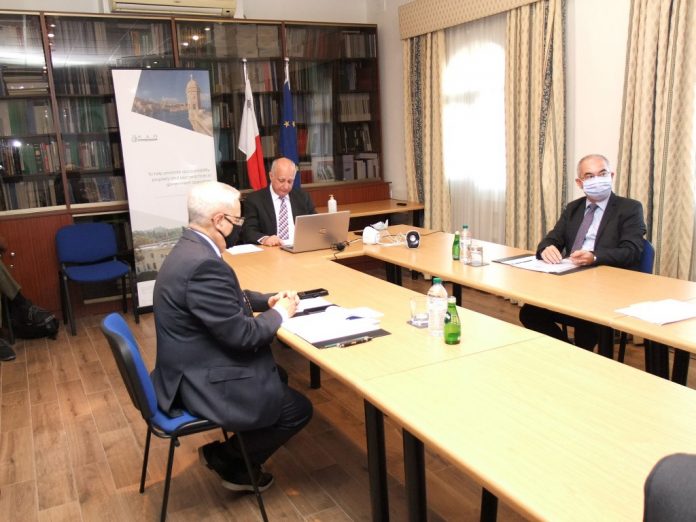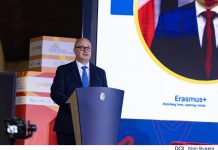The National Audit Office (NAO) in collaboration with the European Court of Auditors (ECA) organised another joint seminar with the theme of ‘Responding to the COVID 19 Pandemic – The Audit Perspective’. In view of the current circumstances, this year’s seminar was held virtually at the NAO.
In his opening address, Auditor General Charles Deguara highlighted the fact that considering the present circumstances, the theme chosen for this year’s seminar could not have been more topical and relevant. He conveyed his appreciation both to the NAO’s auditors as well as to the auditees across the public service who managed to overcome all obstacles and challenges imposed by the pandemic and managed to finalise all the planned audit reports for this year. Resilience and flexibility were two critical factors that enabled staff to adapt as best as possible to the new situation, necessitating the use of telework and virtual meetings.
In his keynote speech, the Maltese member of the European Court of Auditors (ECA) Leo Brincat said that resilience and agility are crucial for Europe to overcome the challenges posed by the COVID-19 pandemic. Mr Brincat explained that the biggest challenge during the pandemic was finding new methods and practices that would speed up decision-making processes during times of crisis. “Those organisations that were most decisive in their practices and operations, were the ones that had the best results”, said Mr Brincat. He pointed out that although the pandemic had disrupted the work routine, the European Court of Auditors adapted its work practices, starting two new tasks on the European Union’s contribution to public health and the economic response of the European bloc to the spread. Mr Brincat said talks had also continued on the European Union’s new financial package for the next seven years and the COVID-19 recovery package for European member states. He reiterated that the mission of the European Court of Auditors remains to oversee the operation of European funds derived from European citizens’ taxes.
The discussion continued with a speech from the Swedish Member of the ECA Eva Lindstrom, who spoke on ‘A sustainable, digital recovery: Opportunities from an audit perspective’. She emphasised that, “Sustainability is about preparedness”, and continued by saying that, “If we want to achieve the SDGs and the green inclusive recovery post-COVID-19, we must focus equally on all three pillars of sustainable development: environmental, social and economic sustainability”. Ms Lindstrom noted that while we have observed a growing awareness on climate change and social issues among citizens, “The debate on climate change is not getting enough attention at governmental level due to pandemic”. She stressed the importance of fostering digital transformation and the necessary changes SAIs must implement in order to achieve it. Ms. Lindstrom added that, “We should use the momentum in the right way, and never let a good crisis go to waste”.
This was followed by two other presentations which focused on the operational perspective. William Peplow, Senior Manager at the NAO, who focused on the theme: ‘The COVID-19 Pandemic – Impact on NAO’s Operations’, said that in challenging times, the NAO’s role, like any other SAI, as the body responsible for independent external oversight in ensuring accountability, transparency, inclusiveness and effectiveness, is more critical than ever. Despite the pandemic, it remains crucial that governments apply their resources in accordance with the law, and equally as important, in economic, efficient and effective ways, either when dealing with the crisis or when keeping the country’s sectors well-functioning. Within this context, he outlined the approach and provided an insight of COVID-19 related work being undertaken by the NAO. On her part, Simone Sapiano, Manager, IAID, presented the theme: ‘COVID 19: Turning a pandemic into an opportunity’, emphasising the fact that people’s willingness to adapt to the situation and resort to different yet still effective work procedures was critical for the successful completion of various audit assignments.
Following various interventions from the participants, who included members of the Public Accounts Committee, as well as staff from the NAO and the IAID, the Deputy Auditor General Noel Camilleri, wrapped up the seminar with an interesting overview of the main issues raised by the various speakers throughout this semina










